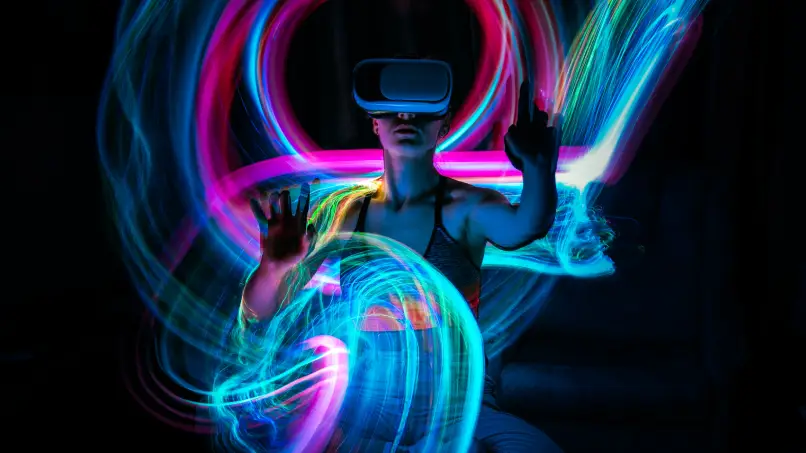
Share this content!
Share this content!
Table of contents
One should be able to see that two revolutionary concepts are reshaping the future of gaming: Play-to-Earn games and the metaverse. These innovations promise not only to transform how we play games but also how we interact, socialize, and even earn a living in virtual worlds.
The rise of Play-to-Earn gaming is bridging the gap between leisure and livelihood, offering gamers tangible rewards for their time and skills. Simultaneously, the metaverse is emerging as a vast, interconnected digital universe where these activities can thrive and evolve in unprecedented ways.
We’ll explore how these innovations are not just changing games but are also poised to redefine our digital lives. From the intricacies of Play-to-Earn economies to the expansive potential of the metaverse, we will uncover the hidden opportunities that lie ahead. Welcome to the future of gaming—a future where playing and earning merge into one immersive experience.
Other articles that you will like:
- Comparing the Benefits and Drawbacks of Play-to-Earn
- The Rise of Play-to-Earn: How Gamers Are Turning Fun into Profit
- The Future of Gaming: Cryptocurrency Rewards for Gamers
- Play-to-Earn Trends in Mobile Gaming: Exploring the Landscape
- The Role of NFTs in Play2Earn Games
What is Metaverse Meaning?
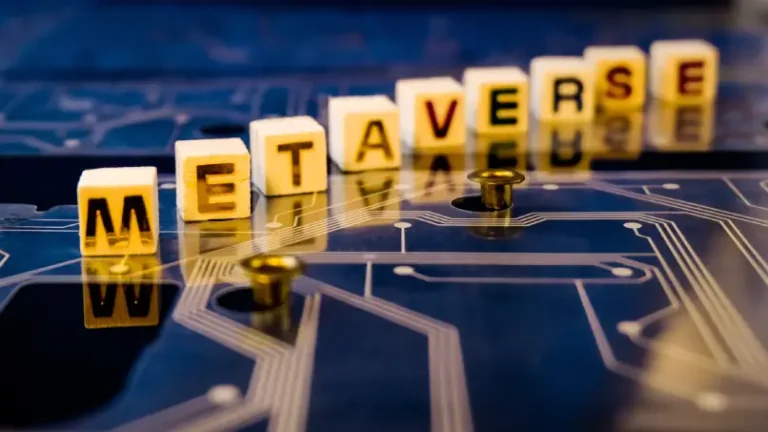
The metaverse has gained significant traction recently, but its true meaning extends far beyond its buzzword status. At its core, the metaverse represents a collective virtual shared space.
It encompasses a wide array of digital experiences, from fully immersive virtual reality environments to augmented reality overlays that enhance our physical world.
Unlike traditional online experiences, the metaverse is persistent. So, it continues to exist and evolve even when individual users log off. This continuity is one of its defining characteristics, allowing for a dynamic and constantly evolving digital landscape.
Where Is Metaverse?
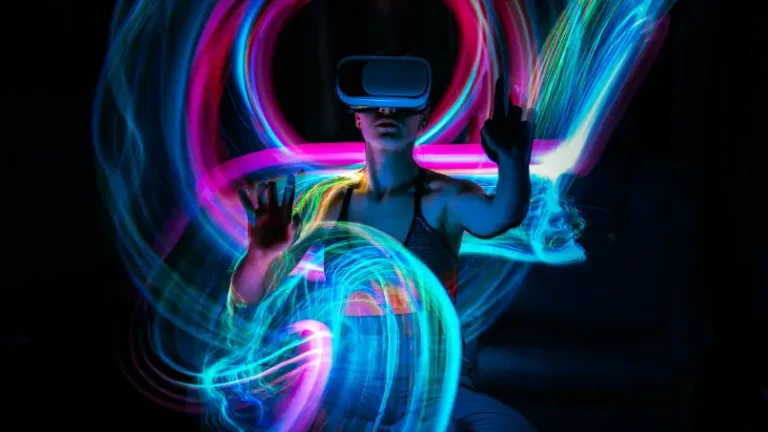
The metaverse is not confined to a single location or platform; it is a vast, interconnected network of virtual worlds and digital spaces. Key players like Decentraland, The Sandbox, and Roblox have already established themselves as early pioneers, creating expansive virtual environments where users can socialize, create, and trade. These platforms provide a glimpse into the potential of the metaverse, showcasing how diverse and interactive these digital spaces can be.
However, the metaverse’s true potential lies in its ability to integrate various digital experiences seamlessly. Imagine attending a virtual concert in one world, then teleporting to another to attend a business meeting, all while maintaining your digital identity and assets. This level of interoperability and fluidity is what sets the metaverse apart from traditional online experiences.
The Significance of the Metaverse
Why Metaverse Matters
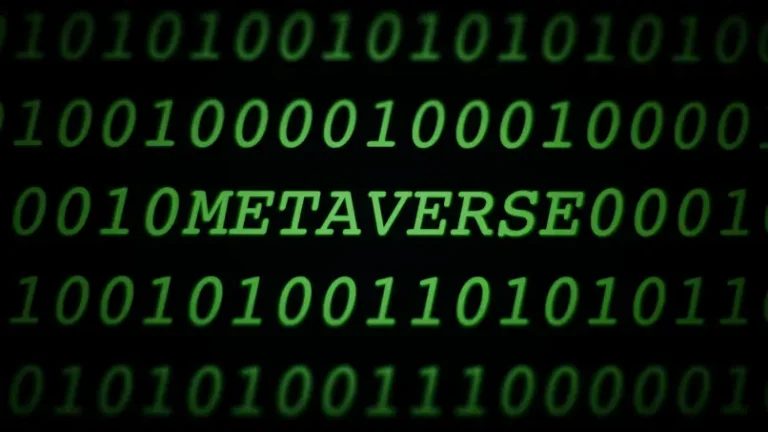
The metaverse matters because it represents a fundamental shift in how we interact with online digital content and each other. It’s not just about gaming or virtual reality; it’s about creating a new layer of reality that enhances our everyday lives. In the metaverse, digital and physical realities merge, allowing for new forms of social interaction, entertainment, and economic activity.
For gamers, the metaverse offers an unprecedented level of immersion and engagement. Play-to-Earn games within the metaverse allow players to earn real rewards through gameplay, blurring the lines between work and play. This new economic model empowers gamers to monetize their skills and time in ways that were previously unimaginable. As these virtual economies grow, they will have significant real-world impacts, creating new job opportunities and reshaping industries.
Play-to-Earn Games: Revolutionizing Gaming Economics

The Play to Earn model is revolutionizing the gaming industry since it introduces new ways for players to earn real money through gameplay. This shift is more than just a trend; it represents a significant transformation in how we perceive and engage with games. In traditional gaming, players invest time and a lot of money into games without any tangible returns. Play-to-Earn games, however, allow players to monetize their efforts, creating a more sustainable and rewarding gaming experience.
Can You Really Make Money Playing Mobile Games?

Yes, you can make money playing mobile games, especially with the rise of Play-to-Earn. Ugami is an excellent example of it.
P2E games offer you the great opportunity to earn real-world rewards, such as cash, gift cards, or cryptocurrency, by completing in-game tasks, achieving milestones, or simply spending time playing.
Mobile games like Crowd Path y Block Puzzle – Gems Adventure, played through platforms like Ugami, can offer users rewards for gameplay. Ugami’s Play-to-Earn system, for example, enables players to accumulate points through these games and redeem them for gift cards from top U.S. stores.
Blockchain Gaming and Crypto Earnings

Blockchain gaming introduces a new dimension to the Play-to-Earn ecosystem by enabling players to earn cryptocurrency. This model, often referred to as Play-to-Earn crypto, utilizes decentralized and transparent blockchain technology. In these games, players can earn crypto tokens, which hold real-world value and can be traded or sold on various platforms.
Blockchain Gaming Explained
Blockchain gaming leverages the decentralized nature of blockchain technology to create secure and transparent gaming ecosystems. In traditional games, in-game assets and currencies are typically controlled by the game developers, limiting players’ ownership and transferability. Blockchain games, however, use non-fungible tokens (NFTs) and decentralized ledgers to give players true ownership of their digital assets.
So what this means is that players can buy, sell, and trade in-game items on various marketplaces, creating real economic value. Additionally, blockchain gaming opens up new possibilities for cross-platform play and interoperability, allowing players to use their assets across different games and virtual worlds.
Popular Metaverse Games

The metaverse is home to a variety of innovative games that offer unique and immersive experiences. Some of the most recommended metaverse games include Decentraland, The Sandbox, Mars Farming 2034, and Axie Infinity. These games allow gamers to explore virtual worlds, build and trade digital assets, and engage in various activities that go beyond traditional gaming.
The Economic Impact of Play-to-Earn Games
Play-to-Earn games are not merely a trend but a fundamental shift in the gaming industry, merging the lines between play and work. These games are creating vibrant digital economies. So, this new model presents several unique aspects seldom discussed by industry experts:
- True Ownership of Digital Assets: Unlike traditional video games, where in-game items or currencies are owned and controlled by developers, P2E games often use blockchain technology to ensure players have true ownership of their assets. This means that items earned or bought in the game can be traded or sold on secondary markets, giving them real-world value.
- Decentralized Marketplaces: P2E games create decentralized marketplaces where players can trade in-game assets freely. This not only democratizes the gaming economy but also fosters a sense of community and collaboration among players. These marketplaces are often supported by cryptocurrencies, providing a seamless and secure trading experience.
- Income Generation: Some players can earn a steady extra income by participating in P2E games. It is a great way to buy the things you like without breaking the bank.
- Skill-Based Earnings: Unlike passive income models, P2E games reward players based on their skills and efforts. This encourages a meritocratic system where the best players can earn the most, regardless of their background or starting capital.
- Community-Driven Development: P2E games often involve the community in their development process. Players can vote on updates, suggest new features, and even participate in the creation of in-game content. This participatory approach ensures that the game evolves according to the players’ needs and preferences.
The Future of Play-to-Earn in the Metaverse

Integration with the Metaverse
The metaverse offers a fertile ground for the expansion of P2E games, providing a vast, interconnected digital environment where these games can thrive. Here’s how P2E games are set to evolve within the metaverse:
- Seamless Interoperability: In the metaverse, players will be able to move assets and identities across different virtual worlds. This interoperability means that items earned in one game can be used or traded in another, creating a cohesive and unified digital economy.
- Enhanced Social Interactions: The metaverse provides a more immersive and social gaming experience. Players can interact in real-time, participate in events, and collaborate on tasks, making P2E games more engaging and community-oriented.
- New Revenue Streams: The metaverse opens up new revenue streams for P2E games. Virtual real estate, advertising, and sponsorship deals within these digital worlds can provide additional income for both developers and players.
Future Trends and Predictions

As P2E games continue to evolve within the metaverse, several trends are likely to shape the future of this industry:
- Augmented Reality and Virtual Reality Integration: The combination of AR and VR with P2E games will create even more immersive and engaging experiences. Imagine playing a P2E game where you can physically interact with your environment, collect virtual items, and earn rewards in a fully immersive setting. This technological integration will make gaming more interactive and potentially more rewarding.
- Artificial Intelligence (AI) Enhancements: AI can be used to personalize gaming experiences, making them more tailored to individual players’ preferences and skill levels. AI-driven characters and environments can adapt to the player’s actions, creating a dynamic and ever-changing gaming world that keeps players engaged and motivated to earn more.
- Collaborative Ecosystems: Future P2E games will likely emphasize collaboration over competition. Gamers will work together to achieve common goals, earn collective rewards, and build shared virtual spaces.
- Educational and Skill Development: P2E games can be designed to help players develop real-world skills and knowledge. Educational games that reward players for learning new concepts or mastering practical skills can provide a dual benefit of entertainment and personal development. This approach can make gaming a valuable tool for lifelong learning.
The Impact on Traditional Gaming

The rise of P2E games and their integration into the metaverse is also influencing traditional gaming models:
- Increased Competition: Traditional game developers are facing increased competition from P2E games, which offer the added incentive of real-world rewards. This competition is driving innovation and pushing traditional developers to explore new ways to engage and retain players.
- Hybrid Models: Some traditional games are adopting hybrid models that incorporate P2E elements. This allows players to enjoy the familiar gameplay while earning rewards, bridging the gap between traditional and blockchain-based gaming experiences.
- Shift in Monetization Strategies: The success of P2E games is prompting traditional developers to rethink their monetization strategies. Instead of relying solely on in-app purchases and advertisements, developers are exploring ways to share revenue with players, creating a more balanced and player-friendly economic model.
- Cultural Acceptance: As P2E games become more mainstream, they are changing the cultural perception of gaming. Gaming is increasingly seen as a legitimate way to earn money and develop skills, breaking down stereotypes and attracting a more diverse audience.
The Reality of Earning with Play-to-Earn Games
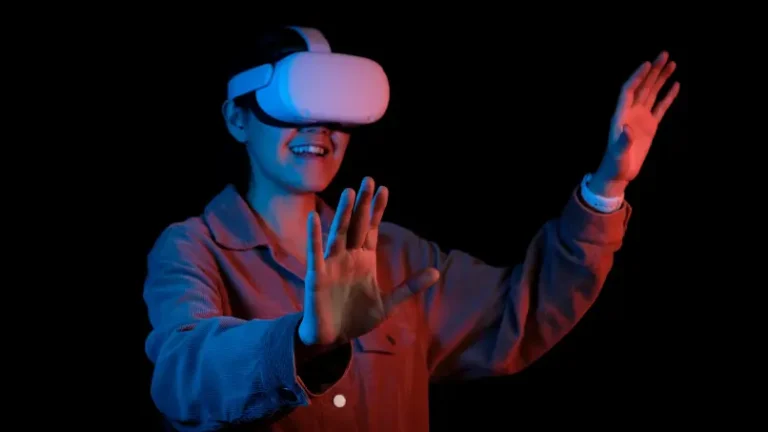
The concept of earning real money by playing mobile games might sound too good to be true, but with the rise of Play-to-Earn games, it has become a tangible reality for many. Here are some unique insights into how P2E games enable players to make money:
- Diverse Income Streams: P2E games provide various ways to earn, from winning battles and completing quests to trading in-game assets. Players can also earn through staking, where they lock up their in-game tokens for rewards. This diversification allows players to maximize their earning potential.
- Cryptocurrency Integration: Many P2E games are built on blockchain technology, using cryptocurrencies as their primary means of transaction. This integration offers players the ability to earn, trade, and cash out their earnings in real-world currencies. Cryptocurrencies also offer the advantage of decentralized finance (DeFi), enabling players to participate in yield farming and liquidity provision.
- Marketplace Trading: One of the most lucrative aspects of P2E games is the ability to trade in-game items on decentralized marketplaces. Rare items, characters, and skins can fetch significant sums, especially if they are in high demand. These marketplaces are often global, giving players access to a wide audience of potential buyers.
Success Stories and Examples
Several games have set benchmarks in the P2E space, showcasing the potential for substantial earnings:
- Axie Infinity: This game has become synonymous with P2E gaming. Players breed, battle, and trade creatures called Axies, earning tokens that can be exchanged for real money. Many players in developing countries have reported earning more from Axie Infinity than from their traditional jobs.
- CryptoBlades: In CryptoBlades, players earn Skill tokens by defeating enemies and participating in raids. These tokens can be traded, providing an extra income stream for dedicated players.
- Gods Unchained: This blockchain-based card game rewards players with tradable cards that can be sold in the marketplace. The rarity and strategic value of these cards make them valuable assets.
The Mechanics of Metaverse Games

Metaverse games represent a convergence of virtual reality, augmented reality, and blockchain technology. They create expansive, interconnected digital worlds where players can interact, create, and trade. Here are some key mechanics that define metaverse games:
- Interoperability: Metaverse games are designed to be interoperable, meaning assets and characters can move seamlessly between different games and virtual worlds. This enhances the value of in-game items and provides a continuous gaming experience.
- Virtual Real Estate: Players can buy, sell, and develop virtual land in the metaverse. This real estate can be used for various purposes, including hosting events, creating experiences, or renting out to other players. The value of virtual land is often driven by its location and the activities it supports.
- Decentralized Governance: Many metaverse games use decentralized autonomous organizations (DAOs) to govern their worlds. Players can vote on game updates, policies, and other decisions, ensuring that the community has a direct impact on the game’s development.
Driving Innovation and Creativity

Blockchain’s decentralized nature fosters innovation and creativity in game development:
- Player-Created Content: Blockchain allows players to create, own, and monetize their content. This includes custom skins, items, and even entire game modes. This player-driven approach encourages creativity and adds diverse content to the game.
- Cross-Game Ecosystems: Blockchain enables the creation of cross-game ecosystems where assets and characters can move between different games. This interconnectivity enhances the gaming experience and provides more value to the players.
The Future of Blockchain Gaming
The integration of blockchain in gaming is still very new. But it holds immense potential for the future:
- Enhanced Realism: Blockchain can be used to create more realistic and immersive gaming experiences. This includes realistic economies, dynamic environments, and complex character interactions.
- Mainstream Adoption: There is no doubt that a broader adoption in the gaming industry is likely to occur. This will bring more players into the fold and drive further innovation.
In conclusion, Play-to-Earn and metaverse games are reshaping the gaming landscape, offering players unprecedented opportunities to earn money, create, and interact. The integration of blockchain technology enhances these experiences, providing security, transparency, and decentralization. As the industry evolves, it will continue to challenge conventional gaming models and pave the way for a new era of digital interaction and economic participation.
Ready to Level Up? Download the Ugami app now and start earning rewards by playing your favorite mobile games!




